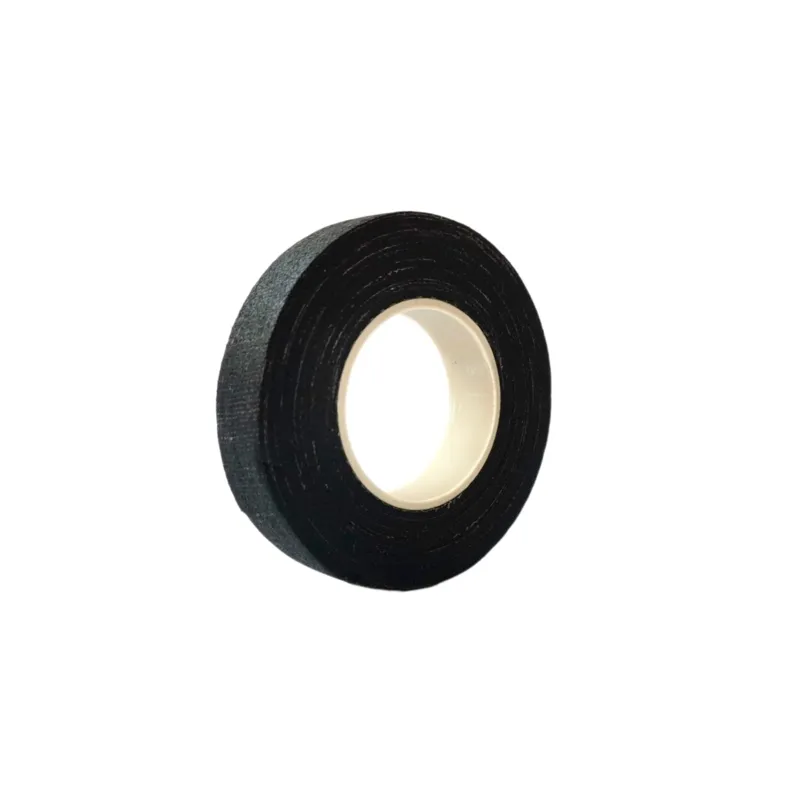Understanding Electrical Insulation Tape Types
Electrical insulation tape is a vital component in both industrial and domestic applications, providing essential protection and insulation in electrical systems. This versatile material is designed to prevent electrical leakage and protect against short circuits, making it an indispensable item for electricians, audio technicians, and DIY enthusiasts alike. In this article, we will explore the various types of electrical insulation tapes, their unique properties, and suitable applications.
1. PVC Electrical Tape
Polyvinyl Chloride (PVC) electrical tape is perhaps the most commonly used insulation tape. It is known for its excellent elasticity, durability, and chemical resistance. PVC tape can withstand a range of temperatures and is available in various colors, making it ideal for color-coding wiring systems. Typically, PVC tape has a thickness ranging from 0.15 mm to 0.20 mm, which provides sufficient insulation while remaining flexible. It is suitable for indoor applications, wire splicing, and general-purpose insulation.
2. Cloth Electrical Tape
Cloth electrical tape, often referred to as gaffer's tape, has a fabric backing coated with adhesive. Its strength and ease of use make it perfect for temporary solutions, particularly in audio and lighting setups. Cloth tape is durable and can withstand heavy use, which is vital in event production. It can also be used for bundling cables and protecting them from abrasion. However, it is less effective in high-temperature environments unless specifically designed for such conditions.
3. Mastic Tape
Mastic tape, also known as self-fusing tape, is an advanced insulation product that provides highly effective sealing and insulation. This silicone or rubber-based tape adheres to itself rather than to surfaces, creating a waterproof and flexible seal. Mastic tape is particularly useful for applications requiring excellent resistance to moisture and UV light. It is ideal for outdoor use, including sealing splices, connections, and protecting against environmental factors.
electrical insulation tape types

4. Rubber Insulation Tape
Rubber insulation tape is designed for high-temperature applications and offers excellent electrical insulation properties. Made from a stretchy, rubber-like material, this tape is flexible and can conform to irregular surfaces. It is typically rated for high voltage applications, making it suitable for automotive and industrial use. The self-vulcanizing properties of rubber insulation tape help it create a strong bond once applied, ensuring resilience against environmental conditions.
5. Kapton Tape
Kapton tape is a polyimide film tape that can withstand extreme temperatures (up to 500°F or 260°C). It is used in applications where heat resistance is necessary, such as in electronics and aerospace industries. Kapton tape's thin and lightweight nature makes it ideal for applications requiring high-performance insulation without adding bulk. In addition, it has excellent dielectric properties, making it a preferred choice for insulating sensitive electronic components.
6. Fiberglass Electrical Tape
Fiberglass electrical tape is designed for high-temperature applications and offers excellent insulation properties. This tape is composed of a fiberglass substrate coated with a silicone resin. It can withstand temperatures over 500°F (260°C) and is highly flexible, making it ideal for applications requiring heat resistance in motors, transformers, and generators. Additionally, fiberglass tape provides robustness against chemical degradation, ensuring reliable performance in harsh environments.
Conclusion
Selecting the right type of electrical insulation tape depends on the specific requirements of the application at hand. Factors such as temperature tolerance, environmental exposure, and electrical rating all play pivotal roles in this decision-making process. By understanding the characteristics of the various insulation tape types—PVC, cloth, mastic, rubber, Kapton, and fiberglass—users can make informed choices that ensure safety, efficiency, and durability in their electrical installations. Whether for professional applications or residential projects, utilizing the appropriate electrical insulation tape is essential for maintaining the integrity of electrical systems and preventing hazards.
-
XIANGFAN Rubber Tape-Ultimate Solutions for All Your Insulation NeedsNewsJun.24,2025
-
XIANGFAN Rubber Tape-Protection for Industrial and Residential ApplicationsNewsJun.24,2025
-
XIANGFAN Rubber Tape: Superior Safety and Sealing for Demanding EnvironmentsNewsJun.24,2025
-
XIANGFAN Rubber Tape: Reliable Solutions for Every Electrical ChallengeNewsJun.24,2025
-
XIANGFAN Electrical & Industrial Tape: Powering Reliability Across IndustriesNewsJun.24,2025
-
XIANGFAN Electrical & Industrial Tape: Excellence in Every ApplicationNewsJun.24,2025
